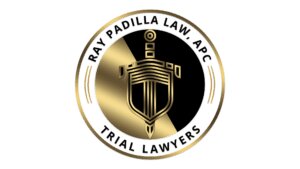Best Antitrust Litigation Lawyers in California
Share your needs with us, get contacted by law firms.
Free. Takes 2 min.
Or refine your search by selecting a city:
List of the best lawyers in California, United States
About Antitrust Litigation Law in California, United States
Antitrust litigation involves legal disputes that arise when businesses or individuals are accused of violating laws designed to promote free competition and prevent unfair business practices such as price fixing, monopolies, and unlawful restraints of trade. In California, antitrust law is governed by both federal and state statutes, aimed at protecting consumers and competitors from anti-competitive conduct. The core objective is to ensure a fair market where businesses compete on merit and consumers benefit from lower prices and greater choices. California has a robust regulatory environment, and its courts frequently handle high-profile antitrust cases involving industries such as technology, health care, agriculture, and retail.
Why You May Need a Lawyer
Antitrust litigation is complex, involving intricate facts, economic analysis, and detailed statutes. You may need a lawyer if you are:
- Accused of engaging in anti-competitive conduct such as price fixing, bid rigging, or forming a cartel
- Believing that you or your business has been harmed by another company's monopolistic practices or unfair trade restraints
- Facing an investigation by the California Attorney General or federal agencies regarding your business practices
- Seeking to challenge or defend against exclusive contracts, mergers, or acquisitions that may impact competition
- Unsure about compliance with state or federal antitrust laws in your business operations
A lawyer can help you understand the applicable laws, assess your risks, develop a legal strategy, represent you in court or negotiations, and ensure your rights are protected throughout the process.
Local Laws Overview
California's antitrust laws are some of the most consumer-protective in the United States. The main state law is the Cartwright Act, which prohibits combinations that restrain trade or commerce within California. The Unfair Competition Law (UCL) also often applies in antitrust cases, addressing deceptive, unlawful, or unfair business practices. These state statutes often operate alongside federal laws, like the Sherman Act and the Clayton Act.
Key aspects of California antitrust litigation include:
- Actions can be brought both by private parties and by authorities such as the California Attorney General
- California law sometimes provides broader protections than federal antitrust law
- Penalties may include injunctions, monetary damages (sometimes including treble damages), and orders for the cessation of unlawful conduct
- Businesses operating primarily in California are expected to comply with these statutes even if headquartered elsewhere
Frequently Asked Questions
What is antitrust litigation?
Antitrust litigation refers to court cases involving alleged violations of laws that promote competition and prohibit unfair business practices such as monopolization, price fixing, and bid rigging.
What laws apply to antitrust cases in California?
Antitrust cases in California are governed by both federal laws (Sherman Act, Clayton Act) and state laws (Cartwright Act, Unfair Competition Law).
Who can file an antitrust lawsuit in California?
Both the government and private parties harmed by anti-competitive behavior can file antitrust lawsuits in California courts.
What types of business conduct are considered illegal under antitrust laws?
Illegal conduct includes price fixing, market allocation, bid rigging, exclusive dealing, tying arrangements, and attempts to monopolize a market.
What penalties can result from antitrust violations?
Penalties can include monetary damages, injunctions against certain business practices, and in some cases, treble damages (three times actual damages).
How do I know if my business practices could be at risk of violating antitrust laws?
If your business agreements or collaborations could reduce competition, fix prices, allocate markets, or exclude competitors unfairly, you should consult a lawyer to assess risk.
Can consumers bring antitrust claims?
Yes, consumers who have suffered damages because of anti-competitive conduct may have the right to bring a lawsuit against the responsible parties.
What is the Cartwright Act?
The Cartwright Act is California's main antitrust law, which prohibits agreements to restrain trade or commerce within the state.
How long do I have to file an antitrust lawsuit in California?
The statute of limitations for antitrust claims varies, but in California it is generally four years from the date of the alleged violation.
What should I do if my business is investigated for antitrust violations?
Contact an experienced antitrust lawyer immediately to ensure your rights are protected and to navigate the investigation with as little risk as possible.
Additional Resources
If you need more information or assistance, consider the following resources:
- California Department of Justice - Antitrust Law Section
- United States Department of Justice - Antitrust Division
- Federal Trade Commission (FTC) - Competition Bureau
- State Bar of California - Lawyer referral services and informational materials
- American Antitrust Institute - Educational resources about competition law
Next Steps
If you believe you need legal assistance with an antitrust issue in California, consider the following actions:
- Gather any documentation and information relevant to your situation, including contracts and correspondence
- Make detailed notes about the conduct or practices you are concerned about
- Consult with an experienced antitrust litigator or a qualified law firm focusing on competition law
- Ask for an initial consultation to review your circumstances and consider your options
- Follow your lawyer's advice regarding communication, compliance, and mitigation steps
Early legal counsel can make a significant difference in protecting your rights and achieving a favorable outcome. If you are facing an investigation or suspect anti-competitive practices affecting your business, do not delay in seeking informed legal help.
Lawzana helps you find the best lawyers and law firms in California through a curated and pre-screened list of qualified legal professionals. Our platform offers rankings and detailed profiles of attorneys and law firms, allowing you to compare based on practice areas, including Antitrust Litigation, experience, and client feedback.
Each profile includes a description of the firm's areas of practice, client reviews, team members and partners, year of establishment, spoken languages, office locations, contact information, social media presence, and any published articles or resources. Most firms on our platform speak English and are experienced in both local and international legal matters.
Get a quote from top-rated law firms in California, United States — quickly, securely, and without unnecessary hassle.
Disclaimer:
The information provided on this page is for general informational purposes only and does not constitute legal advice. While we strive to ensure the accuracy and relevance of the content, legal information may change over time, and interpretations of the law can vary. You should always consult with a qualified legal professional for advice specific to your situation.
We disclaim all liability for actions taken or not taken based on the content of this page. If you believe any information is incorrect or outdated, please contact us, and we will review and update it where appropriate.
Browse antitrust litigation law firms by city in California
Refine your search by selecting a city.














